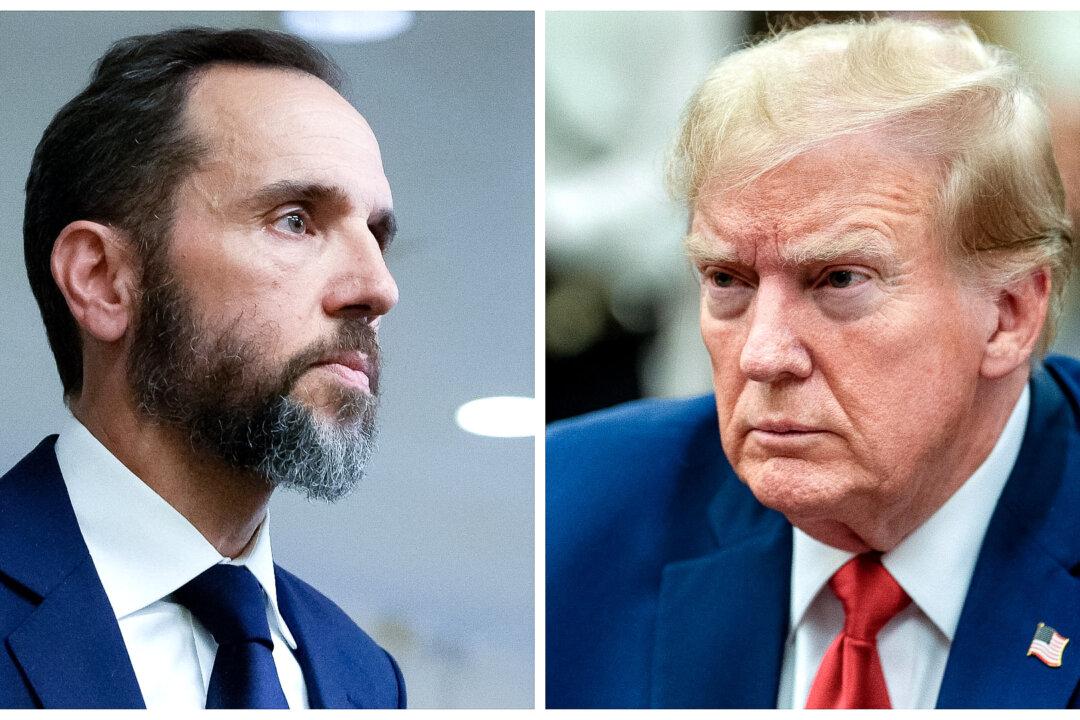Special counsel Jack Smith has again shot down claims that he lacks the legal authority to prosecute former President Donald Trump for alleged wrongful retention of classified documents, labeling the arguments as “meritless.”
President Trump has been charged with 40 counts related to allegedly mishandling classified documents by keeping them after he left the White House in 2021 and obstructing officials from having them returned to the government. Mr. Smith was appointed special counsel on Nov. 18, 2022, to prosecute the government’s case against President Trump.





